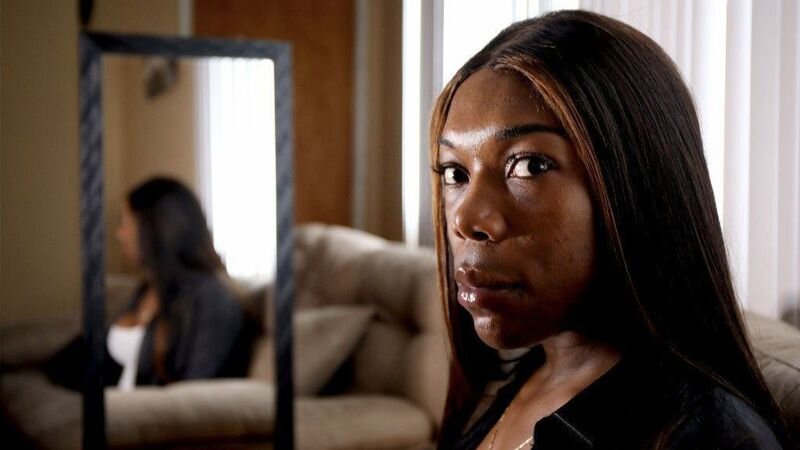
Name Change Lawsuit
In 2019, TJLP filed a lawsuit challenging the constitutionality of an Illinois law that restricts name changes based on prior criminal convictions. Eisha Love (pictured) is one of the lead plaintiffs.
THELAW.
In Illinois, people with certain criminal convictions are barred from changing their legal names.
Felony Convictions: 10-year name change wait period from the date of sentence termination
Identity Theft: lifetime restriction
Sex Crimes Requiring Registration: lifetime restriction
In 1993, the Illinois Legislature passed a 2-year name change wait period for all felonies under the false justification that doing so was necessary to maintain accurate criminal records. The law was amended in 1995, 1996, and 2007 to include all of the restrictions in effect today. Illinois is not the only state with these kinds of restrictions, but it is by far the harshest. Only 9 states have name change wait periods and permanent restrictions based on criminal convictions.
In most of those states, the restrictions only apply to a few enumerated convictions as opposed to all felonies. In 29 states, judges have discretion to deny name changes based on prior criminal convictions, but there are no wait periods or permanent restrictions, and law enforcement agencies are simply notified if the name change is granted. In 13 states, there are no name change criminal restrictions at all.
THEIMPACT.
Because of these restrictions, thousands of people in Illinois are forced to live with an unwanted, unaffirming, harmful, and inaccurate name on their government identity documents:
trans and gender non-conforming people
people escaping abuse and domestic violence
people seeking to change their names for religious reasons
people seeking to change their last names
anyone else who wants to change their legal name for any reason
THIS LAW VIOLATES THE RIGHTS OF COUNTLESS PEOPLE AND PUTS THEM AT RISK. FOR TRANS PEOPLE, LIVING WITH A GOVERNMENT ID DISPLAYING THEIR DEAD NAME CAN OUT THEM, LEADING TO HARASSMENT, DISCRIMINATION, VIOLENCE, AS WELL AS DENIAL OF EMPLOYMENT, HOUSING, PUBLIC BENEFITS, AND ENTRANCE TO BUILDINGS.
32% of trans and gender expansive people who showed IDs with a name or gender marker that did not match their presentation reported being harassed, denied services or being attacked.
We unfortunately turn away multiple people every month who are prohibited from changing their name because of criminal records restrictions in the current law. The majority of those turned away are Black and Latina women, who already experience a higher rate of discrimination and violence.

Name Change Lawsuit
On May 1, 2019, Transformative Justice Law Project, in collaboration with volunteers from the legal community, filed a federal lawsuit challenging the constitutionality of Illinois’ name change criminal restrictions. This case is part of our long-term commitment to abolishing all collateral consequences of criminal convictions, as well as all forms of criminalization, policing, and incarceration. The litigation is currently pending in the Federal Court of the Northern District of Illinois.
Our goal is simple: we believe that everyone should have a fundamental right to choose their own legal name, free of government restrictions.
Name Change Lawsuit Updates: since the initial filing, the Court sided with defendants and dismissed the case due to a lack of legal standing. TJLP filed in the Seventh Circuit Court of Appeals to continue our fight to remove unfair and unconstitutional restrictions on legal name changes. Due to the legislative success of HB2542, the lawsuit was voluntarily dismissed as the case became moot. Every plaintiff who joined this lawsuit and fought for their rights and the rights of other transgender and gender expansive individuals who were impacted by this restrictive and draconian law can now file for a name change in the State of Illinois.
Neither the defendants nor presiding Judge argued that Illinois’s criminal name change restrictions are constitutional. But, complicated rules around how to sue state officials allowed the Judge to dismiss the case. In an effort to increase transparency and accessibility within the court system, we’ve compiled all documents filed over the course of the name change lawsuit below.
Name Change Bill
(effective January 1, 2024)
HB2542 brings IL law in line with the majority of other states and helps trans and gender-expansive people and survivors of human trafficking live safer and more authentic lives by:
Removing the ten year waiting period for people with felony convictions
Removing the lifetime ban for people with identity theft convictions
Adding a judicial discretion exception for people seeking a name change due to gender-related identity, marriage, religion and status as a human trafficking survivor to the registration period ban in the Sex Offender, Arsonist and Murderer and Violent Offender Against Youth Registration Acts
Improving efficiency by focusing the grounds for State’s Attorney Objections on petitions filed by people with pending charges, a conviction of identity theft or aggravated identity theft or a conviction requiring registration with the Sex Offender Registry
Increasing transparency by requiring notice of objections served on petitioners
Removing the outdated third party affidavit requirements
Expands access to publication waiver and streamlines the waiver process
Streamlining procedure with a statewide, standardized petition
HB 2542 is vital to ending the unnecessary barriers keeping people who have completed their criminal sentences from changing their names. These lifetime and 10-year bans add punishments not ordered by a judge, and further jeopardize people’s ability to gain safe housing, employment, and education. It is time for this social banishment to end and for people’s humanity to be respected.


